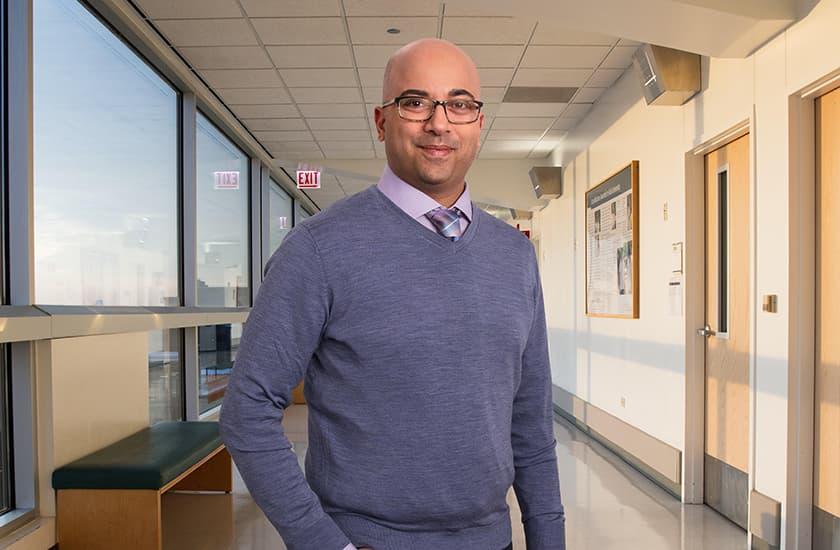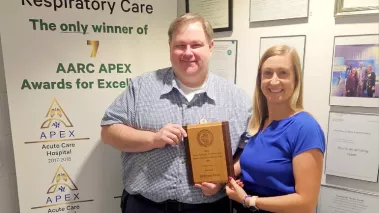“Chicago’s West Side, one of the most violence-impacted regions in the country, is a mental health care desert,” says Niranjan S. Karnik, MD, PhD, the new associate dean of Community Behavioral Health at Rush. While mental health services in these neighborhoods never fully met the demands of this population, according to Karnik, now most of those mental health centers are closed, pushing many residents to emergency rooms for situations that would be best handled in outpatient settings.
But rather than rebuild the brick-and-mortar models of the past, Karnik and Rush are partnering with highly motivated local community groups to reimagine ways to deliver mental health services to these struggling neighborhoods. This project — called the West Side Behavioral Health Initiative — is being coordinated with West Side United, a collaborative of health care institutions, churches and community groups — including Rush — as well as local business and foundations that work toward building community health and economic wellness on the West Side.
Looking to other countries for inspiration
Karnik’s international work as a sociologist and child psychiatrist, helping underserved communities, has very much informed his new leadership role at Rush, in which he oversees a portfolio of initiatives that reflect Rush’s commitment to improving the well-being of Chicago’s West Side. “There’s a lot we can learn in the United States from those abroad who have done so much with so very little,” he says. “We have a lot to learn, but we can do amazing things.”
In fact, Karnik found his inspiration in re-envisioning mental health care on the West Side from the revolutionary work of psychiatrist Dixon Chibanda in Zimbabwe. Chibanda trained grandmothers to provide basic mental health services to other villagers. “Chibanda knew Zimbabwe didn’t have the resources to provide mental health services throughout the country. So, knowing that every village has a respected and grounded grandmother, he looked to them for help, and the work they have done has had a real impact,” Karnik says.
To Karnik, the parallels between Zimbabwe and Chicago’s West Side were hard to ignore. Like Zimbabwe, the West Side currently doesn’t have the financial resources or the providers to adequately meet its needs. “So, I asked myself, ‘how do we bridge the gap?’ And I thought if grandmothers can do it, why can’t I train lay people on Chicago’s West Side to do the same thing.”
Training community members
Currently, Karnik is collaborating with community partners and will soon train lay people in interventions for depression, trauma and substance abuse — the West Side’s top three mental health problems. They’ll complete an initial five-day training for community health workers, following a workbook-based curriculum, and will then build on that foundation with additional training and support down the line.
Community partner organizations will refer those in need to the lay providers, or those connections will happen organically through neighbors, friends and other types of referrals. “The intent is to keep the access relatively easy, so we get to people early,” Karnik says.
Karnik is also creating a professional workforce to back up lay providers by giving guidance and support for situations that don’t fit the script. He is building a dedicated telehealth team that lay providers can access through smartphones to allow these professionals to join sessions, help assess acute situations and help think through next steps.
In addition to benefitting those with mental health issues, Karnik hopes this initiative will improve the economic well-being of lay providers and the community more generally. Lay providers will receive compensation for their work, and Karnik believes many will pursue further training to become professional mental health service providers themselves. “A higher skillset will increase their ability to find good paying jobs.” Karnik says. “In turn, they will bring those financial resources back into the community.”
January 4, 2019







